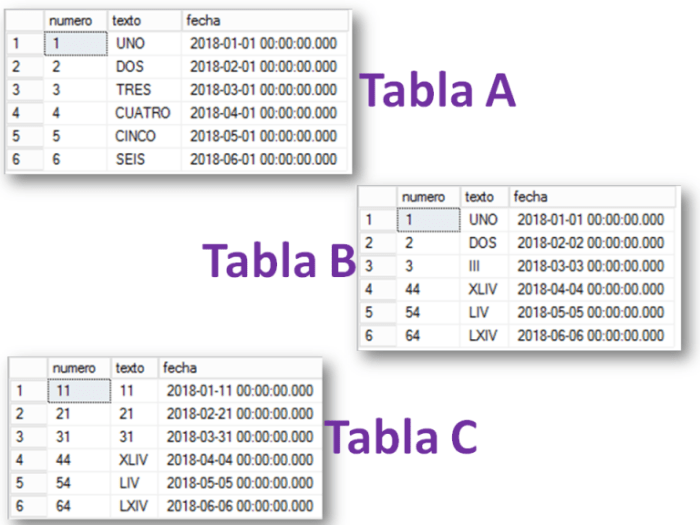All of the following are true about SQL except: it is a powerful and versatile database management system that has been widely used for decades. It is known for its declarative nature, making it easy to retrieve and manipulate data.
However, there are certain limitations to SQL that users should be aware of.
SQL is a structured query language, which means that it uses a specific syntax to define queries. This can make it difficult to learn and use for those who are not familiar with programming languages. Additionally, SQL is not well-suited for handling certain types of data, such as unstructured data or large datasets.
Characteristics of SQL: All Of The Following Are True About Sql Except:

SQL (Structured Query Language) is a powerful and versatile database programming language specifically designed for managing and manipulating data in relational database management systems (RDBMS). It offers a comprehensive set of features that enable efficient data retrieval, modification, and management.
One of the key characteristics of SQL is its declarative nature. Unlike procedural languages that require explicit instructions on how to perform a task, SQL allows users to specify what data they want without having to specify the exact steps on how to obtain it.
This makes SQL easier to use and understand, especially for non-technical users.
Another important characteristic of SQL is its use of a structured query language. SQL statements are composed of a set of s and clauses that follow a specific syntax. This structured approach makes it easy to write complex queries that can retrieve and manipulate data in a precise and efficient manner.
SQL supports a wide range of data types, including numeric, character, date, and time data types. This allows users to store and manipulate data in a variety of formats, making it suitable for a wide range of applications.
Examples of SQL Queries
- Data Retrieval: SELECT – FROM customers WHERE city = ‘London’;
- Data Modification: UPDATE customers SET name = ‘John Doe’ WHERE id = 1;
- Data Manipulation: DELETE FROM orders WHERE order_date< '2023-01-01';
Advantages of SQL

SQL offers numerous advantages for data management, including:
- Data Organization:SQL allows users to organize data into tables, rows, and columns, making it easy to store and retrieve data in a structured and efficient manner.
- Data Security:SQL provides robust security features, such as access control and encryption, to protect data from unauthorized access and modification.
- Data Integrity:SQL enforces data integrity through the use of constraints and data validation rules, ensuring that data remains accurate and consistent.
- Data Analysis and Reporting:SQL offers powerful data analysis and reporting capabilities, allowing users to extract insights and generate reports from their data.
Examples of SQL Applications
- Data Warehousing: SQL is used to create and manage data warehouses, which store large volumes of data for analysis and reporting.
- Business Intelligence: SQL is used to extract and analyze data for business intelligence purposes, such as identifying trends and making informed decisions.
- Data Mining: SQL is used to perform data mining operations, such as finding patterns and associations in large datasets.
Limitations of SQL

While SQL is a powerful and versatile database language, it does have certain limitations, including:
- Limited Data Type Support:SQL does not support certain data types, such as hierarchical data and spatial data, which may require specialized database systems.
- Limited Support for Complex Data Structures:SQL is not well-suited for managing complex data structures, such as graphs and XML documents.
- Scalability Challenges:SQL can face scalability challenges when dealing with extremely large datasets, requiring specialized techniques or alternative database solutions.
Situations Where SQL May Not Be Suitable
- NoSQL Databases:For applications that require handling unstructured or semi-structured data, NoSQL databases may be a more suitable choice.
- NewSQL Databases:For applications that require both the scalability of NoSQL databases and the consistency of SQL databases, NewSQL databases may be a better option.
- Graph Databases:For applications that need to manage complex relationships and data structures, graph databases may be more appropriate.
Alternatives to SQL

There are several alternatives to SQL, each with its own strengths and weaknesses:
NoSQL Databases
NoSQL databases are designed to handle large volumes of unstructured or semi-structured data. They offer scalability and flexibility, but may not provide the same level of data consistency as SQL databases.
NewSQL Databases
NewSQL databases combine the scalability of NoSQL databases with the consistency of SQL databases. They offer high performance and scalability while maintaining data integrity.
Graph Databases, All of the following are true about sql except:
Graph databases are designed to manage complex relationships and data structures. They are particularly useful for applications that require traversing and analyzing interconnected data.
Factors to Consider When Choosing Between SQL and Alternatives
- Data Type:Consider the types of data that need to be managed.
- Data Structure:Consider the complexity of the data structures that need to be handled.
- Scalability:Consider the volume of data that needs to be managed and the expected growth rate.
- Consistency:Consider the level of data consistency that is required.
FAQ
What are the advantages of using SQL?
SQL is a powerful and versatile database management system that offers a number of advantages, including its declarative nature, its support for a wide range of data types, and its ability to handle complex queries.
What are the limitations of SQL?
SQL is not well-suited for handling certain types of data, such as unstructured data or large datasets. Additionally, SQL can be difficult to learn and use for those who are not familiar with programming languages.